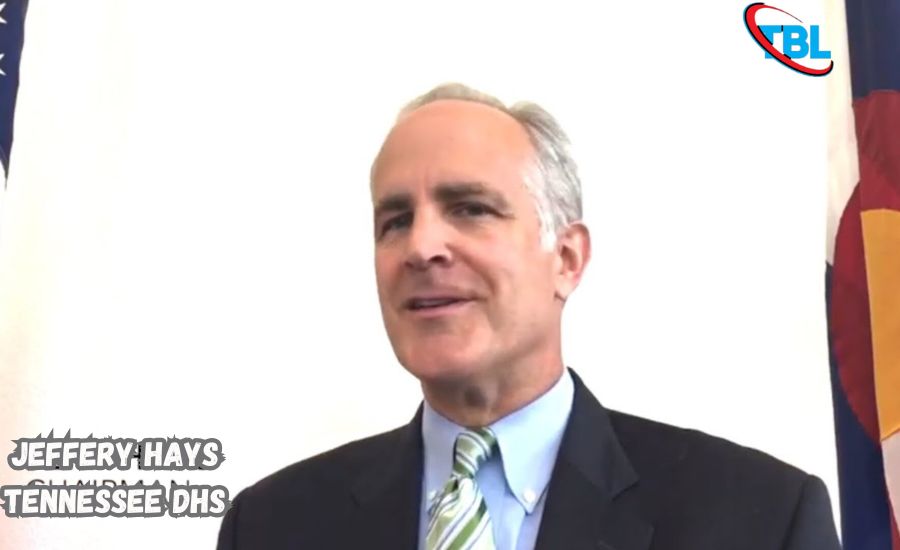Unlocking The Impact Of Jeffery Hays Tennessee Dhs: Transforming Lives And Building Stronger Communities

Welcome to USA MAGZENE! In this article, we will explore the remarkable contributions of Jeffery Hays Tennessee Dhs Department of Human Services (DHS). As a leader deeply committed to social welfare, Hays has been instrumental in reshaping the landscape of services available to Tennessee’s most vulnerable populations. His initiatives focus on improving the lives of families, children, and individuals with disabilities, creating a brighter future for all. Join us as we delve into the transformative impact of his work, examining the various programs and policies that define his leadership and vision.
Who Is Jeffery Hays? Tennessee DHS’s Visionary Leader
Jeffery Hays stands out as a dedicated public servant whose journey in social work has left an indelible mark on the Tennessee Department of Human Services. With a rich background in community engagement and social policy, Hays has spent years advocating for the needs of Tennessee’s citizens. He is known for his compassionate and strategic approach, which prioritizes direct engagement with communities and collaboration with local organizations.
Professional Background and Experience
Before his tenure at Tennessee DHS, Hays garnered extensive experience in various capacities related to social services. His background includes:
- Advocacy: Hays has been a strong voice for marginalized communities, working tirelessly to ensure their needs are met.
- Policy Development: He has played a significant role in formulating policies that promote social equity and accessibility.
- Community Engagement: Hays believes in the power of grassroots movements and regularly engages with community leaders to identify pressing issues.
Leadership Philosophy
Hays’ leadership philosophy is rooted in empathy and accountability. He believes that:
- Empowerment: People should be empowered to advocate for themselves and their families.
- Transparency: Clear communication and transparency build trust between DHS and the communities it serves.
- Collaboration: Working with local organizations and stakeholders enhances the effectiveness of programs.
Through these principles, Hays has developed a robust framework for effective service delivery within Tennessee DHS.
What Jeffery Hays Tennessee Dhs: Building a Supportive Foundation

The Tennessee Department of Human Services plays a pivotal role in providing essential services to the state’s residents. Under Jeffery Hays Tennessee Dhs leadership, the department has focused on creating a supportive foundation for individuals and families facing various challenges. The primary services offered include:
Key Programs and Services
- Food Assistance Programs:
- The Supplemental Nutrition Assistance Program (SNAP) provides critical support to families in need, ensuring they have access to healthy food options.
- Outreach initiatives help eligible families navigate the application process and receive timely benefits.
- Child Welfare Services:
- Tennessee DHS prioritizes the safety and well-being of children through robust child welfare programs.
- Support for foster families is crucial, with resources and training provided to ensure children are placed in nurturing environments.
- Disability Services:
- Hays has championed initiatives to improve access to services for individuals with disabilities, promoting their independence and inclusion in society.
- Vocational rehabilitation programs help individuals find meaningful employment and achieve self-sufficiency.
Goals of Tennessee DHS
The overarching goals of Tennessee DHS under Hays’ leadership include:
- Enhancing Accessibility: Making services more accessible to underserved populations, particularly in rural areas.
- Promoting Self-Sufficiency: Encouraging individuals to achieve financial independence through education and job training.
- Strengthening Family Stability: Supporting families to maintain healthy environments, reducing the need for state intervention.
Through these goals, Tennessee DHS aims to create a stronger, more resilient community.
Leadership at DHS: How Jeffery Hays Drives Change
Jeffery Hays Tennessee Dhs has made significant strides in transforming Tennessee DHS through innovative leadership and a commitment to addressing the complex needs of its clients. His ability to connect with community members and understand their challenges has been key to the department’s progress.
Key Leadership Initiatives
- Streamlined Services:
- Hays has implemented measures to simplify application processes for various programs, reducing wait times and improving client satisfaction.
- Training staff to better assist clients has been a priority, ensuring they provide accurate and empathetic support.
- Increased Funding for Programs:
- Through advocacy and strategic planning, Hays has successfully secured additional funding for crucial programs, ensuring they can meet the growing demand for services.
- This funding allows for the expansion of programs that support families, children, and individuals with disabilities.
- Community Outreach and Education:
- Hays emphasizes the importance of educating the community about available resources, leading to improved participation in assistance programs.
- Outreach campaigns have been launched to raise awareness of services, particularly in high-need areas.
Impact on Service Delivery
- Efficiency Improvements: By refining processes and increasing staff training, Hays has improved overall efficiency within the department.
- Enhanced Client Relationships: Building trust with clients through open communication has fostered better relationships and encouraged more people to seek help.
- Feedback Mechanisms: Implementing systems to gather feedback from clients ensures that services are continually improved based on their experiences and suggestions.
Jeffery Hays’ Key Contributions: Innovations and Improvements
Under Jeffery Hays Tennessee Dhs leadership, Tennessee DHS has seen numerous innovations and improvements that have significantly enhanced the quality of services offered to residents. His forward-thinking approach has introduced modern solutions to age-old problems in social services.
Innovative Program Enhancements
- Digital Services:
- The introduction of online portals has made it easier for individuals to apply for assistance and check the status of their applications.
- Mobile applications are being developed to help clients access information and services conveniently.
- Data-Driven Decision Making:
- Hays has emphasized the use of data analytics to inform program development and resource allocation, ensuring that services are targeted where they are needed most.
- Regular assessments of program effectiveness allow for ongoing adjustments to improve outcomes.
- Collaboration with Tech Companies:
- Partnerships with technology firms have resulted in innovative solutions that enhance service delivery and client engagement.
- Using technology to facilitate communication between clients and caseworkers has improved service responsiveness.
Measurable Outcomes
The impact of these innovations is evident through:
- Increased Program Participation: More residents are engaging with available services, leading to improved well-being.
- Higher Client Satisfaction: Positive feedback indicates that clients feel more supported and empowered.
- Greater Awareness of Resources: Enhanced outreach efforts have resulted in a better-informed public regarding available assistance programs.
Enhancing Public Assistance Programs Under Jeffery Hays Tennessee Dhs
Public assistance programs are vital for individuals and families facing financial hardships. Jeffery Hays Tennessee Dhs has worked diligently to enhance these programs, ensuring they are responsive and effective in meeting the needs of Tennessee residents.
Focus on Food Security
- SNAP Improvements:
- Changes to the SNAP program have streamlined the application process and increased benefits for eligible families, promoting food security.
- Hays has also worked to reduce stigma around seeking assistance, encouraging more families to utilize available resources.
- Community Food Drives:
- Collaborating with local organizations to organize food drives has ensured that families in need receive immediate support.
- Educational programs about nutrition and budgeting have been introduced to help families make the most of their food resources.
Financial Assistance Programs
- Temporary Assistance for Needy Families (TANF):
- Hays has advocated for increased funding and flexibility within TANF, allowing families to receive the support they need during tough times.
- Job training and educational resources are integral components of the program, helping families achieve long-term stability.
- Support for Utility Payments:
- Programs assisting with utility bills have been expanded, providing crucial help to families struggling to make ends meet.
- Hays has prioritized outreach to ensure that those eligible for assistance are aware of their options.
Expanding Child Care Support
- Child Care Subsidies: Increased availability of subsidies for low-income families has made it easier for parents to secure safe and reliable childcare.
- Training for Child Care Providers: Hays has worked to enhance training programs for childcare providers, ensuring they meet high standards of care.
Jeffery Hays’ Commitment to Child Welfare
Child welfare is one of the most critical areas of focus for Jeffery Hays Tennessee Dhs. His leadership has prioritized protecting the rights and well-being of children across the state, ensuring they grow up in safe and nurturing environments.
Comprehensive Child Welfare Programs
- Foster Care Initiatives:
- Hays has implemented programs to recruit and support foster families, providing them with the necessary resources to care for children.
- Regular training and support networks have been established to assist foster parents in their roles.
- Preventative Services:
- A focus on preventative measures aims to reduce the need for state intervention by strengthening families before crises occur.
- Programs that offer counseling and support to at-risk families have shown promising results in keeping children safe.
Advocacy for Policy Changes
- Legislation: Hays has actively advocated for legislative changes that protect children’s rights and improve the child welfare system.
- Community Partnerships: Collaborating with child advocacy organizations has amplified efforts to promote the well-being of children throughout Tennessee.
Hope you find this interesting: Roberra Gurmessa
The Role of Technology in Enhancing DHS Services

In today’s digital age, technology plays a pivotal role in enhancing service delivery at Tennessee DHS. Jeffery Hays Tennessee Dhs recognizes the potential of technology to transform operations and improve client experiences.
Digital Access to Services
- Online Applications:
- Clients can now apply for various assistance programs online, simplifying the process and increasing accessibility.
- User-friendly interfaces have been designed to assist individuals with limited technological experience.
- Virtual Support Services:
- Telehealth services are being integrated into the DHS framework, allowing clients to receive mental health and counseling support remotely.
- Online workshops and informational webinars provide valuable resources to clients in a convenient format.
Improved Data Management
- Data Analytics: Implementing advanced data analytics tools helps DHS track program effectiveness and client needs more accurately.
- Confidentiality Measures: Robust security protocols ensure that client information is protected while still allowing for data-driven improvements.
Building Stronger Communities Through Outreach
Jeffery Hays Tennessee Dhs believes that outreach is fundamental to building stronger communities. By actively engaging with residents, Tennessee DHS can better understand and address the needs of its citizens.
Community Engagement Strategies
- Town Hall Meetings:
- Regularly scheduled town hall meetings allow community members to voice their concerns and provide input on DHS programs.
- These meetings foster transparency and collaboration between DHS and the public.
- Partnerships with Local Organizations:
- Collaborating with local nonprofits and community groups enhances outreach efforts and resource distribution.
- Joint initiatives focus on specific community needs, such as housing assistance and mental health support.
Educational Workshops
- Workshops on Available Resources: Informational sessions help residents learn about the services offered by DHS and how to access them.
- Skills Development: Offering workshops on budgeting, job readiness, and parenting skills equips community members with valuable tools for success.
Challenges Facing Tennessee DHS and Strategies for Overcoming Them
Despite the successes achieved under Jeffery Hays Tennessee Dhs leadership, Tennessee DHS faces several challenges that require ongoing attention and innovative solutions.
Funding Limitations
- Addressing Budget Constraints:
- Hays continues to advocate for increased funding from state and federal sources to support critical programs.
- Exploring alternative funding avenues, such as grants and partnerships, is also a priority.
- Maximizing Existing Resources:
- Implementing cost-effective strategies to make the best use of available resources is essential for maintaining service quality.
Stigma Surrounding Assistance
- Public Awareness Campaigns: Hays is committed to reducing the stigma associated with seeking assistance through community awareness initiatives.
- Client Success Stories: Highlighting success stories of individuals who have benefited from DHS programs can inspire others to seek help.
Adapting to Changing Needs
- Flexibility in Service Delivery: Hays encourages staff to be adaptable in their approaches to meet the evolving needs of clients.
- Feedback Loops: Continuous feedback mechanisms ensure that DHS programs remain relevant and effective.
Conclusion
In conclusion, Jeffery Hays Tennessee DHS Department of Human Services has brought about significant positive changes for individuals and families in the state. His commitment to enhancing services, advocating for vulnerable populations, and fostering community engagement has created a supportive and responsive system. By embracing innovation and prioritizing empathy, Hays has set a standard for public service that prioritizes the needs of those it serves.
As Tennessee continues to evolve, the work of Jeffery Hays and Tennessee DHS will remain essential in building a stronger, more inclusive community. Through ongoing efforts to improve access to services and support, Hays is not only transforming lives but also inspiring future generations to strive for a better tomorrow.
FAQs
Q: What is the role of Jeffery Hays Tennessee Dhs?
A: Jeffery Hays Tennessee Dhs, focusing on enhancing services for families, children, and individuals with disabilities.
Q: How has Tennessee DHS improved its services?
A: Tennessee DHS has streamlined application processes, increased funding for programs, and embraced technology to enhance service delivery.
Q: What are some challenges Tennessee DHS faces?
A: Challenges include funding limitations, stigma surrounding assistance, and the need to adapt to changing community needs.
Q: How can I get involved with Tennessee DHS programs?
A: You can participate in community meetings, volunteer with local organizations, or apply for available programs if you need assistance.
Stay in touch to get more updates on USA MAGZENE







